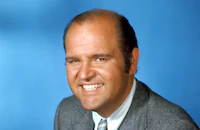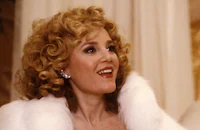The Cheap Detective

Brief Synopsis
Cast & Crew
Robert Moore
Peter Falk
Lee Menning
Lauren Simon
Paula Friel
Carole Wells
Film Details
Technical Specs
Synopsis
Lou Peckinpaugh, the Cheap Detective has entered a world that is half "Casablanca" and half "Maltese Falcone." A parody of Bogart's films in which Lou goes through a series of scenes from the two movies trying to keep ahead of the police who think he killed his partner as he tries to find the black bird.
Director
Robert Moore
Cast

Peter Falk
Lee Menning
Lauren Simon
Paula Friel
Carole Wells
Eileen Brennan
Laurie Hagen
Joe E. Ross
Maurice Marks
James Coco

Abe Vigoda
David Ogden Stiers
Cindy Lang
Tina Ritt
Henry Sutton

Dom Deluise
Nancy Warren
Paul H. Williams
Vic Tayback

Marsha Mason

Fernando Lamas
Cornell Chulay
Jerry Ziman
Nicol Williamson
Charles Bastin
Gary Alexander
James Cromwell
Ronald L Schwary
Louis H Kelly
Emory Bass
Nancy Marlowe Coyne
Dean Perry
David Matthau
Lynn Griffis
Wally Berns
Lee Mclaughlin
Armando Gonzalez

Madeline Kahn
Bella Bruck

Louise Fletcher
Zale Kessler
Lew Gallo
Carmine Caridi

Scatman Crothers
Stockard Channing
John Calvin
Joree Sirianni

Phil Silvers
John Houseman

Sid Caesar
Sheila Sisco
George F Simmons
Jonathan Banks
Gary L Dyer
Barry Michlin
George Rondo
Michele Bernath
Crew
Theoni V. Aldredge
Theoni V. Aldredge
John Alonzo
John A. Anderson
John A. Anderson
Phillip Bennett
Margaret Booth
Lyle Burbridge
John Chulay
Agnes G Henry
Agnes G Henry
Michael J Kohut
Sidney Levin
Robert Luthardt
William Mccaughey
Al Overton Jr.
Charles R Pierce
Neil Simon
Ray Stark
Michael A Stevenson
Patrick Williams
Photo Collections
Videos
Movie Clip




Film Details
Technical Specs
Articles
The Cheap Detective
Essentially picking up where he left off with his Sam Spade send-up of Murder by Death, Peter Falk steps into the gumshoes of Lou Peckinpaugh, a private eye plying his trade in the "fictional" city of San Francisco in the days when WWII was just a-looming. Peckinpaugh doesn't merely come cheap - he stiffs every cabbie, doorman or bartender he encounters with a dogged determination. (Falk, for his part, has an apparent ball with the role; beyond the vocal characterization, the accuracy with which he replicates Bogart's body language is consistently amusing.)
The story initially tracks the plot of The Maltese Falcon (1941), as Lou's partner turns up dead, and the suspicious local cops take note of Peckinpaugh's ongoing affair with the widow (Marsha Mason). After placating the constabulary with Mason's questionable assistance ("Don't call me darling in front of the police with a dead husband!"), Lou's attentions are drawn to a mysterious new client (Madeline Kahn) who answers to Denise Manderley, or at the given moment, Gilda Dabney, Chloe Lamar, or Norma Shearer. Kahn places him on retainer to obtain a coveted object.
From there, Lou's inquiries take him to a watering hole called Nix Place, and the narrative careens into that of Casablanca (1942). (Charles R. Pierce's set is actually replete with props used in the Bogart/Bergman romance.) Once there, he encounters some incongruously-placed German army officers, a torch singer (Eileen Brennan) who leads the crowd in a mumbled sing-along, and the woman he once loved (Louise Fletcher), now married to a French resistance fighter (Fernando Lamas). The embittered Lou warns the bar's piano player (Scatman Crothers) not to play their song -and has no choice but to slam the cover on Crothers' fingers once he launches into Jeepers Creepers.
The next stop on the itinerary is The Big Sleep (1946), as Lou's search for the mastermind behind all the convoluted goings-on lead him to the decrepit industrialist Ezra C.V. Mildew Dezire Jr., nee Vladimir Tserijemiwtz (Sid Caesar) and his desirable trophy bride Jezebel (Ann-Margret). Lou is faced with the daunting tasks of tying up all the plot threads and choosing which of the several femme fatales that he'll walk off into the sunset with.
A few years before the Zucker/Abrahams/Zucker team got to establish their precept that genre spoofs work better with players that aren't typed to comic roles, The Cheap Detective offers similar evidence through the surprisingly funny contributions of Lamas and his befuddled take on Paul Henreid. The same can be said for John Houseman, who amusingly stepped into a role vacated by George Kirby (not to mention a fatsuit) to portray the Sydney Greenstreet-inspired Jasper Blubber ("We should leave separately. Makes more sense if I go first...Then I don't get stuck with the check.")
There's a slew of additional comic contributions from the large and diverse supporting cast, including Stockard Channing, James Coco, Nicol Williamson, Paul Williams, Abe Vigoda, David Ogden Stiers and James Cromwell. Simon's forte is character comedy, and the barrage of verbal and visual gags offered up by The Cheap Detective is not without its misses. Still, the filmmakers' love for the source material is abundantly evident, and any viewer harboring similar sentiments will have their reasons to smile.
Producer: Margaret Booth, Raymond Stark
Director: Robert Moore
Screenplay: Neil Simon
Art Direction: Phillip Bennett, Charles R. Pierce
Cinematography: John A. Alonzo
Editing: Sid Levin, Michael A. Stevenson
Music: Patrick Williams
Cast: Peter Falk (Lou Peckinpaugh), Ann-Margret (Jezebel Dezire), Eileen Brennan (Betty DeBoop), Sid Caesar (Ezra Dezire), Stockard Channing (Bess), James Coco (Marcel), Dom DeLuise (Pepe Damascus).
C-93m. Letterboxed. Closed captioning.
by Jay Steinberg

The Cheap Detective
Ray Stark (1915-2004)
Born on October 3, 1915 in New York City, Stark was educated at Rutgers University and New York University Law School. After graduation, he started his entertainment career selling radio scripts before he became a literary agent for such notable writers as Ben Hecht, Thomas P. Costain, and Raymond Chandler. After serving in the Navy during World War II, Stark - who had show-business connections through his mother-in-law, Broadway legend Fanny Brice - eventually became a top Hollywood agent at Famous Artists, where he represented such stars as Marilyn Monroe, William Holden, Kirk Douglas, and Lana Turner.
By 1957, Stark was hungry to develop more of a taste in the film business, so he formed a partnership with fellow producer Elliott Hyman to create the independent movie firm, Seven Arts Productions. Stark's first film production credit was the popular drama The World of Suzie Wong (1960) starring William Holden and Nancy Kwan; and he followed that up with an adaptation of Tennessee Williams' superb Night of the Iguana (1964) with Richard Burton, Deborah Kerr and Ava Gardner.
Around this time, Stark had the ambition to produce a musical based on the life of his late mother-in-law, and produced his first Broadway musical - Funny Girl. The musical opened on March 24, 1964 and made Barbra Streisand the toast of the Great White Way. Eventually, Stark would make the film adaptation four years later, and Streisand would win the Academy Award for Best Actress. Stark would also arrange a contract with Streisand to do three more movies for him within the next 10 years that still prove to be the most interesting of her career: the hilarious sex farce The Owl and the Pussycat (1970) with George Segal; the romantic drama The Way We Were (1973) with Robert Redford; and the sequel to her film debut Funny Lady (1975) co-starring Omar Sharif.
Stark also delivered another Broadway luminary to the movie going masses when he brought a string of well-acted, Neil Simon comedies to the silver screen, most notably: The Goodbye Girl (1977) with Marsha Mason and Richard Dreyfuss (Oscar winner, Best Actor); The Sunshine Boys (1975) with Walter Matthau and George Burns (Oscar winner, Best Supporting Actor); California Suite (1978) with Alan Alda, Michael Caine, and Dame Maggie Smith (Oscar winner, Best Supporting Actress); the nostalgic Brighton Beach Memoirs (1986) with Blythe Danner; and Biloxi Blues (1988) with Matthew Broderick. He also produced Steel Magnolias (1989), with an ensemble cast that introduced audiences to a radiantly young Julia Roberts. In television, Stark won an Emmy award for the HBO's telefilm Barbarians at the Gate (1993). His last credit as a producer (at age 84) was the Harrison Ford picture Random Hearts (1999).
Although he never won an Academy Award, Stark earned the most prestigious Irving G. Thalberg Award in 1980 and the David O. Selznick Lifetime Achievement Award from the Producers Guild of America in 1999. He is survived by his daughter, Wendy, and granddaughter, Allison.
by Michael T. Toole
Ray Stark (1915-2004)
Quotes
This signature's been tampered with. Your name isn't Denise Manderley, is it?- Lou Peckinpaugh
No. It's Wanda Coleman.- Mrs. Montenegro
Then why does your driver's license say Gilda Dabney?- Lou Peckinpaugh
I believe my life is in danger; that's why I've taken so many precautions. My real name is... Chloe Lamar.- Mrs. Montenegro
Well, thank you, Miss Lamar. I appreciate your honesty. Now can you tell me why you let yourself in with this passkey to search my office? What is it that you were looking for?- Lou Peckinpaugh
Your husband's dead a little over an hour and you're already dressed in black? How long you had that outfit waiting in the closet?- Lou Peckinpaugh
You're wrong. I just bought it. There's an all-night widow shop at Fifth and Geary.- Georgia Merkle
Are you sure the police didn't follow you here?- Lou Peckinpaugh
I'm positive. They came with me.- Georgia Merkle
This is definitely our last date, Georgia.- Lou Peckinpaugh
Mind answering a few questions downtown, Lou?- Lieutenant DiMaggio
We *are* downtown.- Lou Peckinpaugh
Then this will be fine.- Lieutenant DiMaggio
What did you and Merkle argue about last Monday night?- Lieutenant DiMaggio
It's all right. Tell them, darling.- Georgia Merkle
Don't call me darling in front of the police with a dead husband.- Lou Peckinpaugh
Being a private eye may not be much, but we do have a code of honor. It's all right to fool around with your partner's wife, but once he's dead it makes it all so dirty. That's the way it is, angel. You marry yourself a nice guy, have a couple of swell kids. Once you're all set up and happy, maybe we can fool around again.- Lou Peckinpaugh
Trivia
Miscellaneous Notes
Released in United States on Video June 6, 1990
Released in United States Summer June 1978
Released in United States Summer June 1978
Released in United States on Video June 6, 1990













